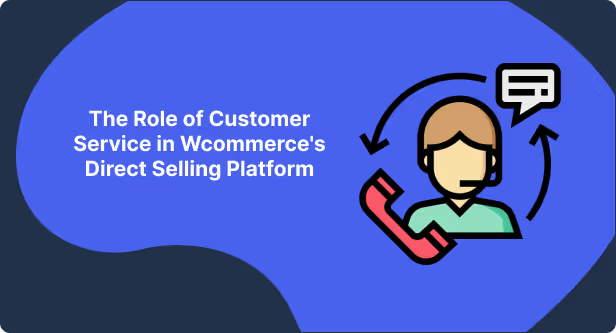In the rapidly evolving digital marketplace, Wcommerce stands out as a premier online store creation platform, empowering entrepreneurs to establish and manage their own e-commerce stores. Central to the success of these ventures is exceptional customer service, which not only enhances user experience but also drives business growth.
Understanding Wcommerce's Business Model
Wcommerce operates on a Business-to-Business-to-Consumer (B2B2C) model, providing tools and services to entrepreneurs (businesses) who, in turn, sell products directly to consumers. This model facilitates seamless interactions between all parties, streamlining the process of bringing products to market.
The Importance of Customer Service in Wcommerce's Ecosystem
1. Building Trust and Credibility
For store owners using Wcommerce, establishing trust with their customers is paramount. By offering reliable customer service, they can build credibility, leading to increased customer loyalty and positive word-of-mouth referrals.
2. Enhancing User Experience
Wcommerce's platform is designed to be user-friendly, but the addition of responsive customer service ensures that any issues or questions are promptly addressed, enhancing the overall user experience for both store owners and their customers.
3. Driving Sales Performance
Effective customer service can directly impact sales performance. Satisfied customers are more likely to make repeat purchases and recommend the store to others, contributing to a steady revenue stream for store owners.
4. Facilitating Customer Retention
Retaining existing customers is often more cost-effective than acquiring new ones. By providing exceptional customer service, store owners can foster long-term relationships with their customers, reducing churn rates and ensuring sustained business growth.
Strategies for Effective Customer Service on Wcommerce
1. Comprehensive Training for Store Owners
Wcommerce offers resources and training materials to help store owners develop the necessary skills to manage their stores effectively and provide top-notch customer service.
2. Leveraging Technology
The platform integrates advanced tools, such as customer relationship management (CRM) systems, enabling store owners to track customer interactions and preferences, facilitating personalized communication and tailored solutions.
3. Proactive Communication
Encouraging store owners to maintain regular communication with their customers helps in addressing potential issues before they escalate, demonstrating a commitment to customer satisfaction.
4. Soliciting and Acting on Feedback
Wcommerce emphasizes the importance of customer feedback. By actively seeking and responding to feedback, store owners can make informed improvements to their products and services, aligning more closely with customer needs.
Challenges in Delivering Exceptional Customer Service
While WCommerce provides a robust platform, store owners may encounter challenges in delivering consistent customer service:
Consistency Across Interactions
Ensuring a uniform level of service across all customer interactions requires diligence and ongoing effort from store owners.
Managing Customer Expectations
Meeting diverse customer expectations consistently necessitates adaptability and a deep understanding of customer needs.
Handling Negative Feedback
Effectively managing and responding to negative feedback is crucial to maintaining a positive reputation and customer trust.
The Future of Customer Service in WCommerce's Direct Selling Platform
As e-commerce continues to evolve, WCommerce is committed to integrating innovative solutions, such as AI-driven customer support and omnichannel communication platforms, to enhance efficiency and responsiveness. By fostering a customer-centric culture, WCommerce ensures that customer service remains a top priority, empowering store owners to succeed in the competitive digital marketplace.
Conclusion
In WCommerce's direct selling ecosystem, customer service is a cornerstone of success. By prioritizing customer satisfaction and providing the necessary tools and support, WCommerce enables store owners to build lasting relationships with their customers, enhance their reputation, and achieve sustained business growth.


.svg)

.svg)
.svg)





















